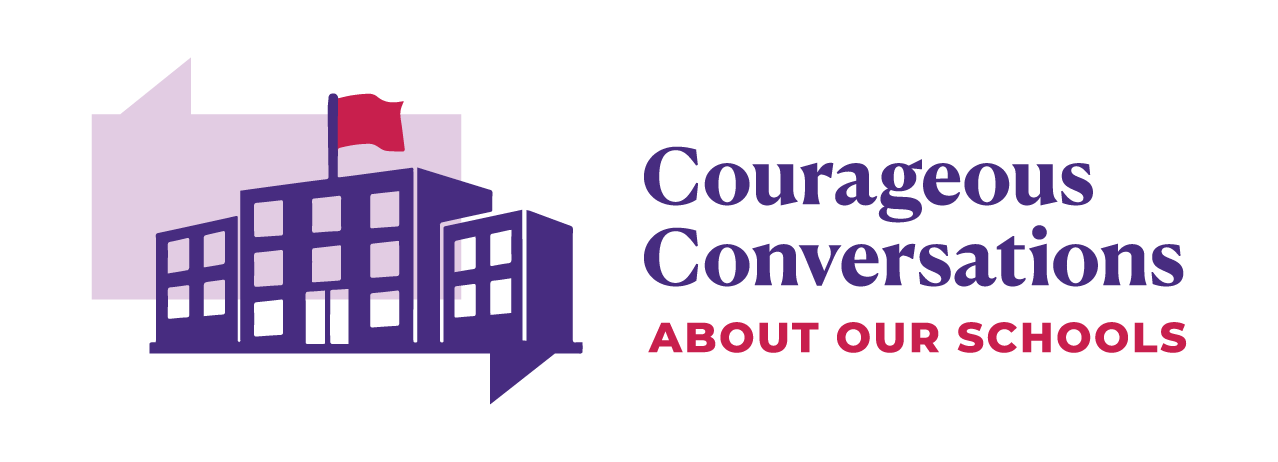Without Personal Connections, Facts and Reasons Seldom Matter
If you are familiar with my podcast, Courageous Conversations about our Schools, you know my aim is to have better, less contentious conversations about controversial issues affecting our schools. The first question I ask my guests – usually people with divergent experiences and perspectives – is always a personal one. Like the one I used in my most recent episode on homeschooling: What teacher had a significant impact on your life?*
Heidi Sampson, a Republican legislator from Maine and veteran homeschooler, spoke about her high school biology teacher who “found the flicker, fanned the flame” and enabled her to pursue her dream -- to become a scientist.
Samantha Field, who was homeschooled herself, recalled her piano teacher, who, she said, “was such a strong advocate when I didn't have anyone else in my life advocating for me.”
As I watched and listened to my other two guests share their teacher stories (we’re on Zoom so we can see each other), I noticed all of them had been smiling. No doubt because they were sharing fond, personal memories. This small group of strangers quickly learned something about each other – something intimate and moving.
These exchanges, brief as they are, change everything.
We’re reminded that the people in the conversation are not simply members of this group or that; advocates for our position or theirs. We’re reminded that while we often disagree, we are bound together by common experiences and desires. We learned that Heidi is not just a conservative policy maker, but, as a student, dreamed of becoming a scientist. We discovered that Samantha was brave enough to tell us that as a child her only advocate was a teacher.
What I have found in all my podcast episodes (and in my personal life) is that when we shift from personal to discussions of controversial topics, we are more inclined to listen, to be curious, and to be civil if we’ve established a personal connection. When my guest Weston Brown describes the huge gaps in his sheltered, homeschooling experience, Heidi, a fierce homeschooling advocate tells him, “My heart breaks for you.” And later, when Weston advocates for government oversight of homeschooling, Heidi, a conservative who generally opposes government regulation, says “There should be a respect for the fact that the child is supposed to be learning something…I think there should be assessments or some certified teacher looking at what a child has done… not what the parent tells them the child has done.”
Journalist Amanda Ripley writes, “Relationships make it harder to dismiss and dehumanize other people.” Elsewhere she adds, “Relationships change us way more than facts.”**
Surely my four guests – strangers to one another before the recorded conversation – hadn’t really formed relationships during the first few minutes when they shared their teacher stories, but they had established enough of a personal connection to have a conversation marked by empathy and a desire to understand, rather than by bombast and a hope to win a debate.
How often do we try to influence others – strangers, political opponents, even family members with whom we’ve lost a relational bond, simply by calling attention to facts and our own well-reasoned arguments? How often has this led them to reject their opinion and to accept ours? What I’ve found is that these encounters often widen the divide and deepen the polarization. We both get more entrenched in our views and less open to the possibility that our adversaries’ perspectives have any merit at all.
None of us likes being wrong. That’s especially true if there’s no trust or fondness for the person pointing it out. To protect our egos or our group standing, we’ll find facts (relevant or not) and/or resort to what psychologists call “motivated reasoning” to defend our position. And to avoid conflict altogether, some of us just cease having conversations with people who disagree with us.
My guests on the homeschooling episode expressed the opposite at the end—they wanted the conversation to continue. When I asked for their takeaways from the conversation, Heidi said, “I have a lot of thoughts…I could sit down with each one of you and just listen and just explore ideas.” Weston said, “I love having this conversation. It’s one that I could have over and over again.”
In divided times, finding a way to keep challenging conversations going is no small accomplishment.
= = =
* To reduce the length of this episode on homeschooling, we did not include the portion where our guests talked about the teachers who made a difference in their lives.
** In her book, High Conflict, Ripley discusses “contact theory” and the many studies that have shown how personal connections reduce unhealthy conflict.


